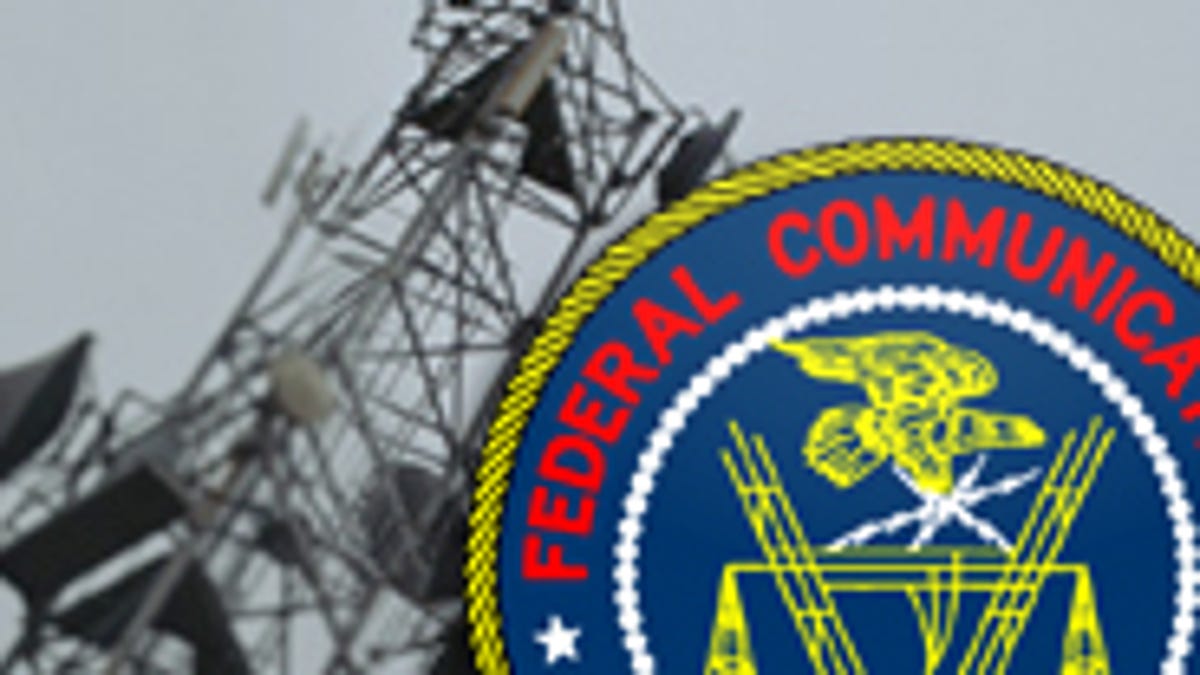FCC to delay national broadband report
Federal Communications Commission says it will miss the February 17 deadline to file its plan to Congress for getting high-speed Internet access to every American.

The Federal Communications Commission says it needs more time to come up with its National Broadband Plan, which was supposed to be submitted to Congress next month.
The FCC said Wednesday that it is asking lawmakers to extend the February 17 deadline for its report by at least a month. The report, which the FCC has been working on since April, was funded by Congress as part of President Obama's economic stimulus package. A task force was formed to develop a policy blueprint for encouraging affordable and ubiquitous broadband for every American. The task force, which is developing the report, is headed by Blair Levin, who served as the chief of staff for former FCC chairman Reed Hundt.
For the past nine months, the national broadband plan has been the primary policy focus of the FCC. The task force has held dozens of open meetings and workshops to engage the public on the issue, Levin said in November when he reported to the commission that his team was on track to deliver the report on time. But now it looks like they need more time.
"In order to ensure that there is sufficient time to more fully brief commissioners and key members of Congress, to get additional input from stakeholders, and to fully digest the exhaustive record before the agency, the chairman has requested from congressional leaders a short extension of four weeks in order to deliver the final plan," Colin Crowell, senior counselor to FCC Chairman Julius Genachowski, said in a statement.
Some of the recommendations that are likely to be made in the report include revamping the FCC's $7 billion Universal Service Fund, which subsidizes telephone service in rural areas. The task force will likely recommend that these funds shift from subsidizing traditional phone service and instead be used to subsidize broadband service in high-cost areas. Genachowski has also expressed interest in revising how the USF is funded. Currently, the program is funded by consumers paying additional charges on their phone bills.
Another more controversial recommendation likely to be in the report is that the government reallocate wireless spectrum to wireless broadband providers in an effort to handle an explosion in wireless data services. TV broadcasters oppose reallocating spectrum.
While much of the plan will identify plans for getting broadband access to citizens who don't have access, such as people living in rural communities, a large part of the plan will also consist of figuring out ways to encourage people who already have access to actually subscribe to service. The task force has identified price as one barrier.
In its early reports, the task force has found a high level of disparity in income levels between people who subscribe to broadband service and those who do not. Nearly 90 percent of families with incomes of $100,000 or more subscribe to broadband services, compared to 35 percent with incomes of $20,000 or less. Rural households are less likely to subscribe to broadband service than urban households. About 65 percent of white households subscribe to broadband, while only 40 percent of Hispanic households and 46 percent of African-American households have broadband.
Another issue brought up by the task force during the meeting is that broadband service providers tend to favor higher-income regions in more populated areas over low-income areas.
The data suggests that many low-income people in these parts of the country are offered only one broadband service option. And these consumers who have only one option tend to pay higher prices for service.
Developing a plan that can be used to get high speed Internet access to every American household is a bold undertaking. And it will likely be a costly one. The task force estimates it will cost between $20 billion and $350 billion to build new infrastructure and to develop new programs for spreading broadband throughout the country. The bulk of this cost will likely be paid by private industry. But the government must develop policies to encourage new investment.
Consumer groups and industry leaders have been watching the development of this broadband plan closely. And they are anxious to get the full details of the report. But representatives from these groups say that Congress should allow more time to ensure that the FCC is able to get their recommendations right.
"The FCC's broadband team has been working virtually 24 hours a day, collecting enormous amounts of data to develop a comprehensive broadband plan for the country," Robert Quinn, AT&T's federal regulatory senior vice president, said in a statement. "If Chairman Genachowski believes that the commission needs an additional 30 days to work on the plan, then that is certainly a reasonable request and one we fully support. The most important thing is getting this right, not meeting a deadline."
But the delay seems to have miffed at least one FCC commissioner. Republican FCC Commissioner Robert McDowell expressed his disappointment in the delay. Earlier this week, during an interview on C-SPAN, he also said he wasn't sure that the final document would be voted on by the five commissioners or if Chairman Genachowski would submit it directly to Congress.
"I am disappointed that the FCC's broadband team is unable to deliver a national broadband plan to Congress by the statutorily mandated deadline. At the same time, I appreciate that Chairman Genachowski shared the news of his decision with me Tuesday afternoon. Once we receive a draft plan, I hope the document will reflect the benefit of the additional time being taken to prepare it."

